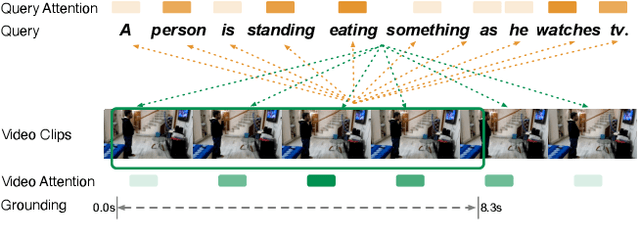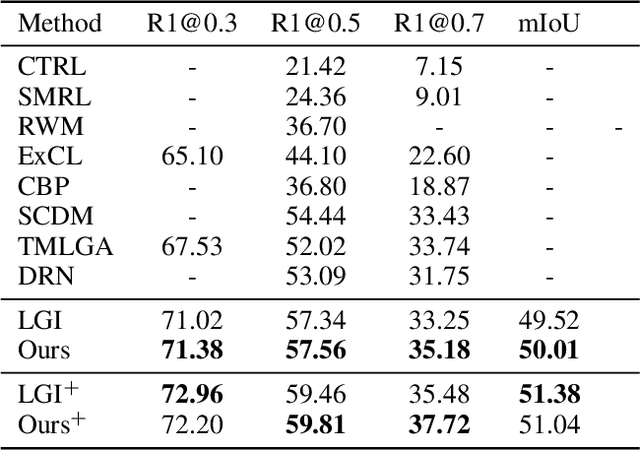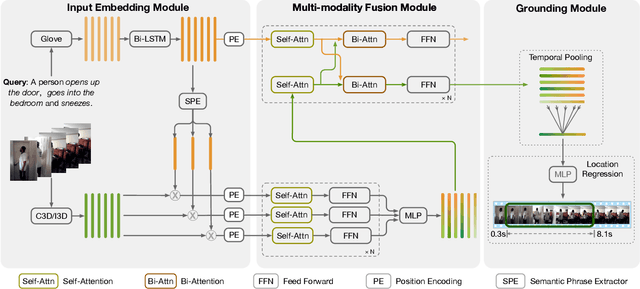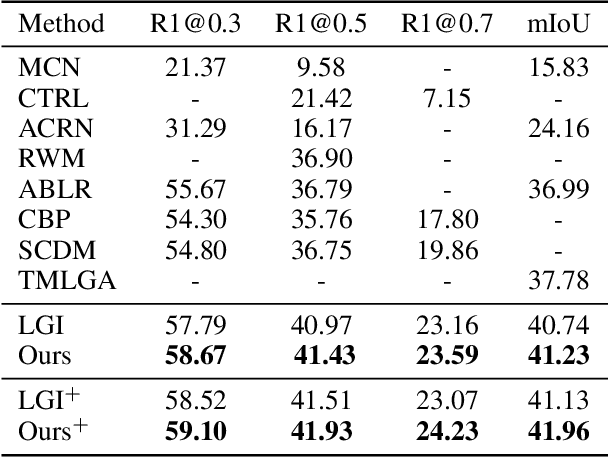Pin Jiang
A Simple Yet Effective Method for Video Temporal Grounding with Cross-Modality Attention
Sep 23, 2020



Abstract:The task of language-guided video temporal grounding is to localize the particular video clip corresponding to a query sentence in an untrimmed video. Though progress has been made continuously in this field, some issues still need to be resolved. First, most of the existing methods rely on the combination of multiple complicated modules to solve the task. Second, due to the semantic gaps between the two different modalities, aligning the information at different granularities (local and global) between the video and the language is significant, which is less addressed. Last, previous works do not consider the inevitable annotation bias due to the ambiguities of action boundaries. To address these limitations, we propose a simple two-branch Cross-Modality Attention (CMA) module with intuitive structure design, which alternatively modulates two modalities for better matching the information both locally and globally. In addition, we introduce a new task-specific regression loss function, which improves the temporal grounding accuracy by alleviating the impact of annotation bias. We conduct extensive experiments to validate our method, and the results show that just with this simple model, it can outperform the state of the arts on both Charades-STA and ActivityNet Captions datasets.
 Add to Chrome
Add to Chrome Add to Firefox
Add to Firefox Add to Edge
Add to Edge